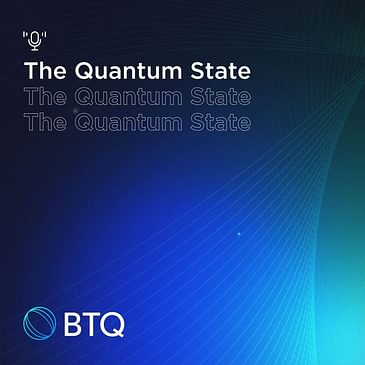In this episode of The Quantum State, we're wrapping up the year 2023 and making bold predictions for what 2024 holds in the realm of quantum technology. Host Anastasia Marchenkova, joined by quantum experts Dr. Peter Rhode and Dr. Gavin Brennan, guides us through the latest developments and future prospects in quantum computing.
🔗 Discussion Points:
Quantum Computing in 2023: A Quiet Year with Surprises:
Reflecting on 2023: Our hosts discuss the year's developments in quantum tech, overshadowed by AI but not without its surprises. 🌐
Increasing Qubit Counts and Error Correction:
Qubit Milestones: The recent announcements of 1000 qubit systems by Atom Computing and IBM, and what this means for quantum computing. 🔑
Error Correction Evolution: Exploring advancements in logical qubits, particularly QuEra's 48 logical qubit breakthrough. 🛡️
Quantum Computing and Cryptocurrencies:
Ethereum's Quantum Resistance Roadmap: Discussing Ethereum's approach to quantum-safe cryptography and the challenges for other cryptocurrencies. 💰
The Hybrid Approach in Security: The movement towards hybrid systems in platforms like Signal, Chrome, and SSH. Is this the future for cryptocurrencies too? 🖥️
The RSA-2048 Controversy:
Claimed Cracking of RSA-2048: Addressing the sensational claim and its implications. 🔑
Corporate Engagement in Quantum Technology: Quantum in the Corporate World: Discussing how companies like Moderna, Foxconn, JPMorgan, and others are integrating quantum computing. ⚠️
General Predictions for 2024:
Quantum Forecast: Speculating on qubit development, potential real-world problem solving, and the investment landscape in quantum technology. 🌐
Join us next time for more explorations into the quantum computing universe with top field specialists!
🎧 Stay Updated: To delve deeper into the world of quantum technologies and The Quantum State, subscribe and hit the notification bell for insightful future episodes.




